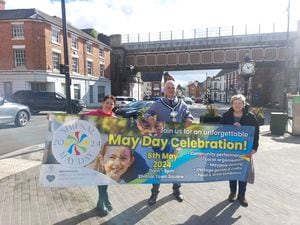Shropshire spends £1.6m on giving antibiotics
More than £1.6 million has been spent by health bosses in the region on antibiotics in the last year – amid fears people will eventually become immune to them.

In Shropshire a total of £1,067,361 was spent on antibiotics at a rate of 65,322 items prescribed per 100,000 people last year. Meanwhile Telford & Wrekin spent £621,797 at a rate of 67,887 items per 100,000 residents last year.
Across England £193 million was spent on antibiotics by clinical commissioning groups at a rate of 70,233 items per 100,000 people, research carried out by the Health and Social Care Information Centre reveals.
Richard Caddy, communications manager for Shropshire CCG which is responsible for buying local healthcare services, said: "Shropshire CCG works with GPs to ensure antibiotics are prescribed appropriately."
The figures come shortly after the National Institute for Health and Care Excellence (Nice) has called for a crackdown on the number of antibiotics being prescribed.
Experts fear that, with no new class of antibiotics or other major scientific development in 30 years, the effects of antibiotics will reduce as the years go by.
However Shropshire GP Dr Mary McCarthy of Belvidere Medical Practice in Shrewsbury said that between 2010 and 2013, GPs prescribing antibiotics rose by four per cent, while prescribing for hospital inpatients rose by six per cent and other community prescribers such as dentists rose by 32 per cent.
She said: "I don't think it's the GPs that are the problem. You've got to look at all prescribers, I think."
Professor Mark Baker, director of the centre for clinical practice at Nice, said millions of "frequent flyer" patients were becoming addicted to the idea of antibiotics, often touring surgeries and A&E wards until they received a prescription.
He has warned that the growing crisis of antimicrobial resistance, in which the profligate use of drugs has allowed bacteria to develop resistance, threatened healthcare and the "whole basis of medicine."
He said infections would have to be treated by surgery if drugs no longer worked.
NICE has published guidance on the issue for doctors, dentists, podiatrists, pharmacists and other professionals.
Tim Ballard, vice-chairman of the Royal College of GPs, said the guidance "to provide the right antibiotic at the right dose at the right time" was sensible.
He added: "But we can come under enormous pressure from patients to prescribe antibiotics, even when we know they are not the right course of action.
"People must realise that this is dangerous for each and everyone of us, not just 'other people'."
A Department of Health spokesman said that the use of antibiotics was the responsibility of patients as well.
He added: "In order to make sure we have effective antibiotics for generations to come, we are raising global awareness of the dangers of resistance to antibiotics.
"We are also providing tools for GPs to support prescribing decisions."





